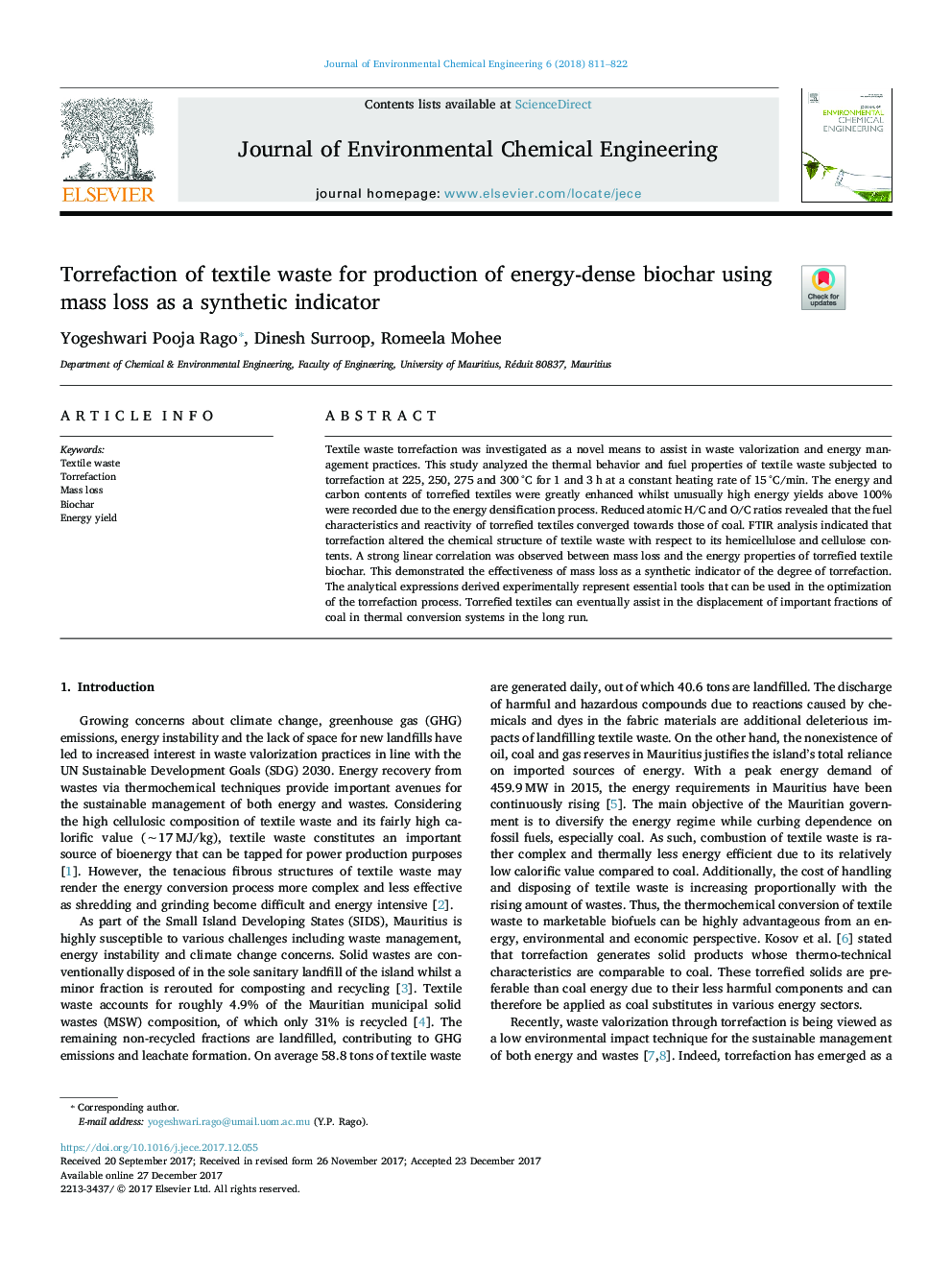| Article ID | Journal | Published Year | Pages | File Type |
|---|---|---|---|---|
| 6664141 | Journal of Environmental Chemical Engineering | 2018 | 12 Pages |
Abstract
Textile waste torrefaction was investigated as a novel means to assist in waste valorization and energy management practices. This study analyzed the thermal behavior and fuel properties of textile waste subjected to torrefaction at 225, 250, 275 and 300â¯Â°C for 1 and 3â¯h at a constant heating rate of 15â¯Â°C/min. The energy and carbon contents of torrefied textiles were greatly enhanced whilst unusually high energy yields above 100% were recorded due to the energy densification process. Reduced atomic H/C and O/C ratios revealed that the fuel characteristics and reactivity of torrefied textiles converged towards those of coal. FTIR analysis indicated that torrefaction altered the chemical structure of textile waste with respect to its hemicellulose and cellulose contents. A strong linear correlation was observed between mass loss and the energy properties of torrefied textile biochar. This demonstrated the effectiveness of mass loss as a synthetic indicator of the degree of torrefaction. The analytical expressions derived experimentally represent essential tools that can be used in the optimization of the torrefaction process. Torrefied textiles can eventually assist in the displacement of important fractions of coal in thermal conversion systems in the long run.
Related Topics
Physical Sciences and Engineering
Chemical Engineering
Chemical Engineering (General)
Authors
Yogeshwari Pooja Rago, Dinesh Surroop, Romeela Mohee,
